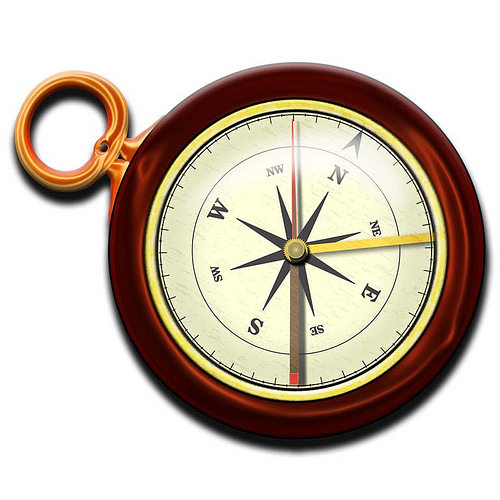 The words we use say so much about how we view ourselves and our world. For example, how many of us are always “searching” for happiness? How many of us just “hope to find it” someday?
The words we use say so much about how we view ourselves and our world. For example, how many of us are always “searching” for happiness? How many of us just “hope to find it” someday?
On the other hand, how many of us are experts at “making ourselves miserable?” How often do we convict ourselves of the crime of being “our own worst enemy” when it comes to achieving those things that bring us joy?
Recent studies have shown that the truth about happiness lies somewhere in the middle; that we ultimately have to create happiness in our lives rather than simply find it. Both the inside and the outside matter but, in the end, it’s what we believe about happiness that ultimately determines the level of joy and contentment we feel from day to day.
Happiness is as much a process and a set of beliefs inside of us, as it is “stuff” outside of us.
These are 4 principles that can help you in your journey to find the happiness that is all around you, and that lies within you as well.
(1) When you have what you need, more of it won’t necessarily make you happier.
We all have certain basic needs for food, shelter and safety. We have to meet these needs first before anything else that is meaningful can take place. Once that happens, however, more stuff doesn’t necessarily mean more happiness.
Studies have shown that we humans don’t agree about the type of objective things that can be measured, like wealth, possessions, life expectancy, or social status, that will make us all happy. These things vary from person to person, culture to culture, and country to country. This is called the absence of an “objective measure for well being.”
The simple truth is that science can’t point to any specific thing or things and say for sure that if you have this or that, happiness is right around the corner. In fact, studies have shown that prosperous nations or individuals who become richer see very little increase in their levels of happiness.
It may be that because we are social beings, when we focus only on what we have to try to make ourselves happy, we all of a sudden notice that there are others around us who have more or better stuff. The problem is “keeping up with the Jones” is never ending; someone somewhere will always have more than we do.
As human beings, we also adapt to physical affluence. Once we have something we tend to grow bored and want something different, bigger, and better. Given that we live in a society where advertisers are paid millions of dollars to convince us we just can’t live without the newest, most updated “techno – gizmo” trying to purchase happiness can be expensive and endless.
So if you’re chasing more “stuff” in the hope that getting it will make you happy, you may be running east looking for a sunset.
(2) Happiness happens from the inside out.
What we have learned, however, is that happiness always involves a sense of “subjective well being.” Once our survival needs are met, it is how we feel about the quality of our life (is it meaningful, satisfying, purposeful, does it reflect our true values and beliefs) that plays a pivotal role in how much joy we feel in living day to day.
Studies show that the happiest people make it a point to connect with other people in a positive way (extroversion), believe that they have value simply because of who they are and not what they have (self esteem), and focus on trying to design their life so it matches their values and beliefs ( a sense of control).
Happiness is an approach, a mind set, a world view. It’s the ability to see both what is good, and what is bad. Happy people can control and shift their focus.
They ask themselves questions that create opportunity and not limitations. They wonder about what can happen, as opposed to focusing on what others say can’t.
In this way, happiness often comes down to what we chose to focus on.
(3) Happy people have a tribe.
Simply put, studies show that positive social relationships are perhaps the greatest cause of happiness. We are social creatures and it’s hard to be happy when you have to face hard times on your own.
SO DON’T!
As long as family relations are positive, make it a point to make that community a priority. Family was meant for more than the holidays. It won’t happen by itself, you have to make it happen, so get going.
Make it a point to stay in touch with friends as well as family. Join an organization that does charitable work that speaks to your values. Find ways to contribute to your community.
Consider joining a faith or spiritual community that shares your values. We are happiest when we feel understood and accepted and that often happens in a “tribe” that is committed to the betterment of its members and society at large.
(4) Happy people work at it.
Happiness requires the ability to observe our reactions and be tolerant of our sometimes unhelpful nervous system. We sometimes have Stone Age reactions to modern day issues because of how our ancestors had to adapt to life in their world.
Known as evolutionary psychology, this involves the study of how we presently interpret what’s happening in our world in seemingly illogical ways makes sense given how harsh life was for our ancestors.
Truth be told, there wasn’t a lot of happiness in Grandpa Caveman’s neighborhood. Prehistoric man’s world was all about survival.
Rule # 1 was “Don’t get eaten!” (Fear what is new).
Rule #2 was “Make as many copies of yourself FAST!” (Reproduce).
Finally, Rule # 3 was “Get as much stuff as you can so you have extra when there is none to be found!” (Scarcity).
We carry this type of apprehension and fear in our nervous systems as part of our genetic inheritance, but you can see how this might make being happy a challenge.
So to deal with this, happy people develop strategies so they are able to get comfortable with being uncomfortable. They accept that they may have feelings of fear about knew or different things.
They learn to watch the fear as an experience, like a wave that comes and goes, but not attach to it and have it take them for a ride. Happy people learn to disentangle from this fear and then take action, which often leads to better results.
Finally, happy people measure what they are considering or are doing in the light of their own values and beliefs. Happiness often resides in knowing who you are, what you believe, and behaving accordingly.
Congruence, when our inside feelings and our outside actions are in sync, plays a huge role in creating a life where we feel at peace. In the end, harmony and tranquility can most often be found in those of us who are living our lives with integrity.
When we live up to our highest standards, we give our life meaning. And when what we do and say reflects who we are at our best, happiness is usually not too hard to find.
Photo credit: Roland Urbanek via Flckr

